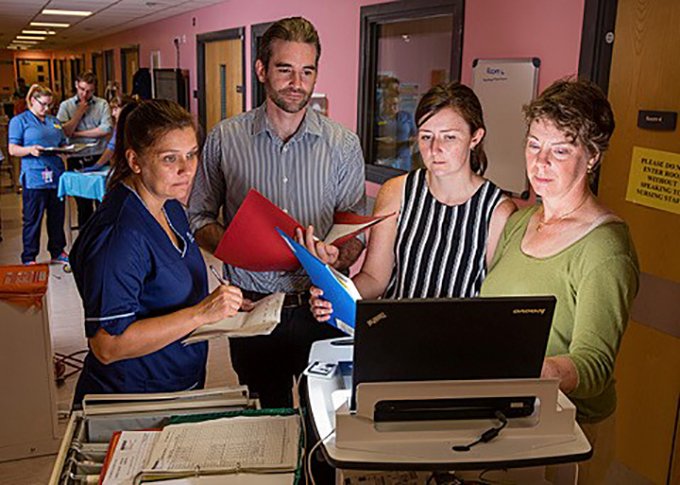Professor Graham Ellis currently works at NHS Health Care Improvement Scotland as National Clinical Lead for Older People. Graham does research in Geriatrics in particular looking at systems of care for people with frailty. He tweets @grahamellis247
I stared through the window at the propellor whirring not much more than 8 feet from my head and wondered what makes the difference between safety and disaster on an aeroplane. Evidence from the airline industry would suggest that the biggest single factor is the human factor - the so called nontechnical skills. Teams that form for a day for a single long haul flight need to know what to do, what their roles are and how to get on as a team. Some argue that extrapolating from the airline industry to healthcare is too simplistic. Nevertheless the airline industry has one of the best safety records of any industry (including healthcare). The Institute of Healthcare Improvement estimates that the equivalent of a Boing 747 worth of lives are lost every week due to safety issues in healthcare in the USA alone. If it were happening in the airline industry we would definitely know about it. It does not create the same outcry in healthcare. We know too that the single biggest cause of variation in healthcare practice and outcome is not patient case mix or resource but clinician’s practice.
And curiously the most frequent category of any written complaint at a hospital is seldom the technical aspects of our work (did we give the right drug or make the right diagnosis) but the attitudes and communication of the staff members. So we need to take a more sober consideration of what other spheres can teach us.
Shouldn’t we already be good at this? Communication, team working and working alongside other disciplines - we invented that as a specialty didn’t we? Surely we don’t need to learn the same lessons? Yet today I reviewed patients intended for discharge. One had developed hospital acquired pneumonia, one had an iatrogenic AKI from a drug interaction, one had immobility secondary to prolonged bed rest and one had been given fluid overload due to rather enthusiastic fluid management. All of this in an otherwise excellent ward with bright and caring staff.
And out of interest - who taught you how to do a ward round? Most of us I imagined simply watched someone who had watched someone. Are we doing it as well as we could? What about the multidisciplinary team meeting? Did you ever learn what that should look like? I had a single supervised session when in training. If like me you did get ‘training’ the chances are it was as a single profession and not alongside your team.
Geriatric medicine is a complex specialty in high demand. Working closely with different disciplines requires high levels of interpersonal skills and excellent communication. Geriatricians as doctors are perhaps the least autonomous and must coordinate care across a range of dimensions of care and sometimes make difficult calls. It is a team game and very firmly weighted in terms of non-technical skills so we cannot afford not to be good at these elements of our skillset. Nor can we afford not to teach or even evaluate them.
In our article for Age and Ageing we were keen to explore the links in the literature between good multidisciplinary team training and outcome. The link between closer, high quality interdisciplinary working and outcomes seems strong and should be self evident, but the gap in terms of prioritising team based training has not diminished. We have work to do.
